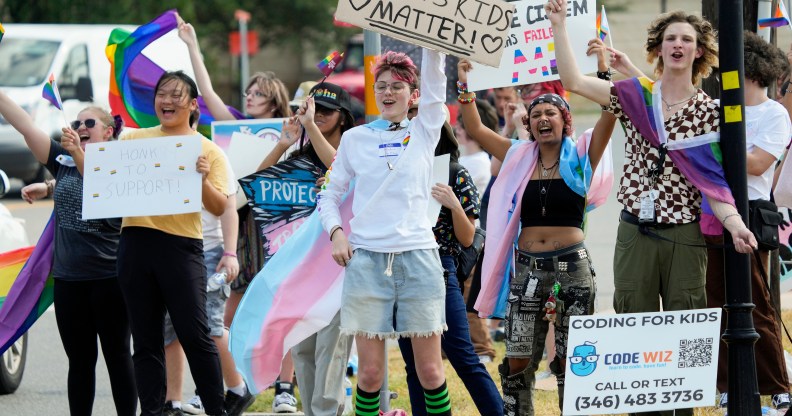Lawmakers in South Carolina approve ban on gender-affirming care for trans minors

South Carolina approves ban on gender-affirming care for minors. ( Houston Chronicle/Hearst Newspapers via Getty Images / Contributor)
Lawmakers in South Carolina, USA, have approved a ban on gender-affirming care for trans youth.
On 18 January, the Republican-dominated House debated and voted “overwhelmingly” in favour of the bill, as per AP News. The bill prevents health professionals from performing gender-affirming surgery, prescribing puberty blockers and overseeing hormone therapy for patients under 18 years old.
The bill also prevents those under the age of 26 – eight years past the age of majority in the Southern US state – from using Medicaid, the nation’s public health insurance program for those from a low-income background, to cover the cost of gender-affirming treatment.
Furthermore, the bill forces teachers and school employees to out transgender and non-binary children to their legal guardians in a potentially unsafe home environment, as it’s illegal for them to withhold such knowledge.
The South Carolina proposal on the ban will soon head to the state Senate, where the chair of the Medical Affairs Committee has said ‘it will have his attention’, according to the outlet.
Last week, lawmakers heard from witnesses and experts on the bill – dubbed House Bill 4624 – including medical experts, who warned that the deeply restrictive legislation could have a detrimental impact on children in the state.
Among those testifying against the bill on medical grounds was paediatrician Dr Deborah Greenhouse, who informed the Medical, Military, Public and Municipal Affairs that, contrary to what they might believe, trans minors in South Carolina do not undergo gender-affirming surgeries. Rather, trans youth who do qualify for gender-affirming care with “fully-involved” parents’ consent, are more likely to have access to hormone replacement therapy and puberty blockers, which can be lifesaving treatments.
In support of this point were parents Dave and Rebecca Bell, who spoke on behalf of their 15-year-old transgender daughter.
The couple revealed that it had taken years for their daughter to be approved for gender-affirming care, with seven visits to an endocrinologist over three years. But, when their child was finally approved for treatment with puberty blockers, they noted a significant difference in her mental health.
Her access to such treatment even meant she was able to stop taking mental health medications. “She did take antidepressants, but in fact, after starting HRT she was able to stop taking them,” they shared.
Elsewhere in the committee hearing, Dr Elizabeth Mack, who is the president of the South Carolina Chapter of the American Academy of Pediatrics, pointed out that gender-affirming care is only provided to trans minors, following meticulous protocols after thorough consultation with doctors and parents.
Dr Mack also pointed out that gender-affirming care for minors is approved and endorsed by every mainstream medical organisation as a safe practice if administered correctly.
Some people shared their testimony anonymously; like one 17-year-old transgender child, who feared what might happen to them if the bill was passed.
“I cannot give you my name because I am one of the kids at risk of physical harm if my family knows I am trans,” their letter read. “South Carolina’s trans kids are all watching you today. We are afraid.”
For anonymous, confidential support from a trans/nonbinary call operator, call Trans Lifeline on 877 565-8860 in the US, and 877 330-6366 in Canada between 10am-6pm Pacific, 11am-7pm Mountain, 12pm-8pm Central and 1pm-9pm Eastern time Monday-Friday.

